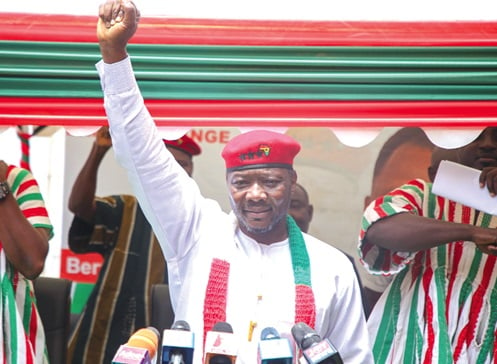On October 21, 2024, the High Court is poised to render a decision in a significant case involving Bernard Mornah, the flagbearer of the People’s National Convention (PNC). Mornah is contesting his disqualification from the upcoming presidential election by the Electoral Commission (EC), a determination made public on September 20, 2024. The EC disqualified 11 candidates, including Mornah, primarily citing unresolved issues in their nomination forms. The case underscores not only the political aspirations of Mornah but also broader implications for electoral fairness and due process within the electoral system.
Mornah’s legal challenge stems from his contention that the EC acted unconstitutionally by denying him the opportunity to address and rectify errors identified in his nomination documents. Alongside two other candidates, Mornah argues that the EC failed to adequately inform them about specific discrepancies, particularly those flagged as potentially criminal in nature. This lack of communication, he asserts, deprived him of the fundamental right to amend any errors before facing disqualification, raising concerns about transparency and fairness in the electoral process as a whole.
In the lead-up to the court’s ruling, Mornah has expressed a hopeful outlook regarding the outcome of his case. During an interview with Citi News, he conveyed confidence that the judgment will favor his appeal, allowing him to campaign effectively for the presidency. Mornah characterized the expected judgment as a corrective measure that would enable him to return to the ballot. He emphasized the importance of this decision not only for his political future but also for the integrity of the electoral process in Ghana, suggesting that the court’s ruling should reaffirm the right of candidates to fair treatment by electoral authorities.
Mornah’s assertion of being the “people’s president” reflects his strong belief in his support base and the relevance of his candidacy within the broader political landscape. He anticipates that overturning his disqualification will reinvigorate his campaign efforts, which have been stalled due to the complications arising from the EC’s decision. The necessity for prompt action is critical as preparations for the election, including the printing of campaign materials, have been put on hold pending the court’s determination. Thus, the stakes are high not just for Mornah, but for the democratic process itself.
The matter at hand extends beyond Mornah’s case, raising essential questions about the role and accountability of the Electoral Commission. The EC’s handling of nomination errors and its decision-making processes must be scrutinized to ensure that future elections uphold democratic principles. As Mornah and others contend with their disqualifications, calls for improved communication and procedural fairness by the EC are likely to gain traction, emphasizing the need for a transparent electoral framework that serves all candidates equitably.
As the court prepares to deliver its judgment, the implications of this case will undoubtedly reverberate throughout Ghana’s political landscape. Whether in favor of Mornah or the EC, the ruling will set a precedent for how nomination disputes are managed in future elections. The expectation is that the decision will not only impact Mornah’s political prospects but also reflect a commitment to upholding constitutional rights and electoral integrity, which are essential tenets of democracy in Ghana.














